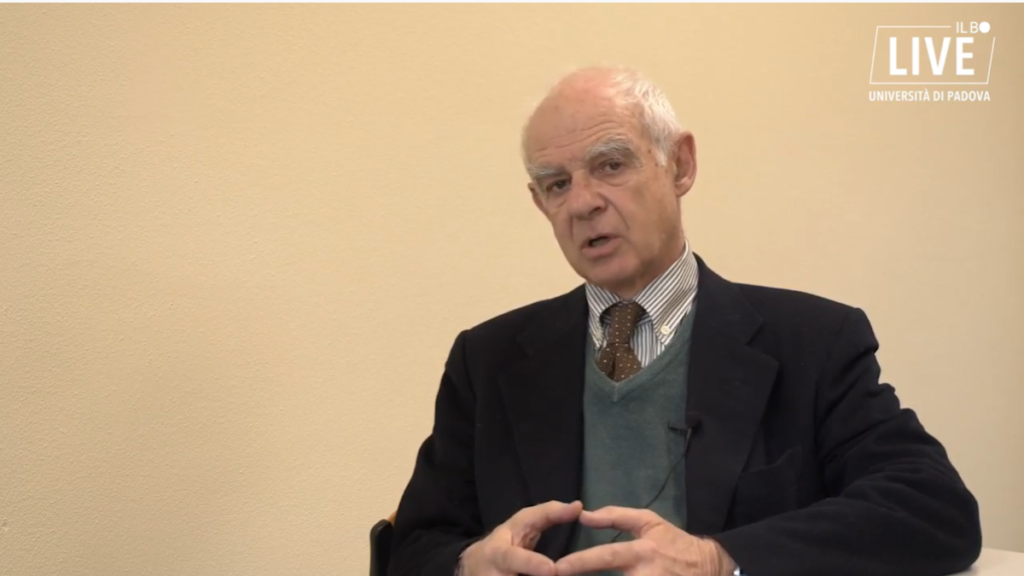“A great hood hovers over us. It is an oppressive climate, made of censorship and intimidation, which hangs over our every word and thought, with more or less veiled impositions and prohibitions on what it is good to say and think.”
The diagnosis of the terrible state of our democracy is the work of Luca Ricolfi and Paola Mastrocola, authors of the Manifesto of Free Thought. The “oppressive climate” responds to the name of “political correctness”: an etiquette of conformism and the verb of the establishment which, like every ideological postulate, has its own priests and zealous guardians; ready to neutralize any heresy.
Ricolfi, a sociologist and university professor, as well as successful essayist and television personality, speaks about this with iFamNews.
Prof. Ricolfi, in which historical period can we place the genesis of “political correctness”?
It is controversial. In the USA, perhaps already by the end of the 1960s, and in Italy certainly in the 1970s.
At the time when “political correctness” was spreading in language in Italy, were there any voices rising against the tide?
To my knowledge, the only authoritative voice that spoke out against it, denouncing the hypocrisy of linguistic changes passed off as real progress, was the writer Natalia Ginzburg (1916–1991), who, since the early 1980s, took a stand with some beautiful articles, published in La Stampa and L’Unità.
In recent days, the Cavour classical high school in Turin has decided to adopt, in official communications to students, the asterisk instead of gender desinences. Yet last month, the Accademia della Crusca expressed its views on the subject, stressing that it is better to use the traditional masculine plural. Does the opinion of the highest linguistic authority no longer count either?
The idea that writing “tutti”, meaning “everyone”, instead of “tutt*”–with an asterisk replacing the masculine “i”–is discriminatory or not very inclusive is just stupid and should fall into ridicule on its own. The very fact that the Accademia della Crusca should be consulted is crazy. If we lived in a world that had a sense of proportion, no one would take such an idea seriously. And the main objection to the asterisk is not that it’s absurd, but only that it’s useless in speech (because it can’t be pronounced), makes you realize how advanced the stage of the disease is.
It’s been written that “there was a time when censorship was of the right, and freedom of expression was of the left.” Is it the opposite today?
No, there is fortunately a part of the left that still defends freedom of expression. The problem is that, with few exceptions (Piero Sansonetti, for example, director of the newspaper Il Riformista), left-wingers do not have the guts to come out in the open for fear of criticism from the radical advocates of “political correctness”. Think of the case of Kathleen Stock, the lecturer forced to resign from the University of Sussex, in Brighton, England, for her views on gender identity. Can you imagine that hardly any of the progressive media waged a battle in her defense? As for the right, the risk is that its defense of the freedom of expression will be turned into indulgence of hate speech by leftists.
The inevitable consequence of “political correctness” is the so-called “cancel culture”, which knocks down statues and claims to rewrite history from scratch on the basis of apparently “more contemporary” parameters, which in reality are ideological?
Unfortunately, “cancel culture” is just one of today’s manifestations of “political correctness.” I counted five others in an essay I published in Repubblica. And the mutation that worries me most is reverse racism, which puts all the blame on the mere fact that someone is white, male, and heterosexual, and claims to assign undue advantages based on skin color and gender.
In the current historical phase, do you also feel the affirmation of “pandemically correct” principles, i.e. the claim to impose a single point of view on COVID-19 and health policy measures?
Of course. Today, in order not to be demonized or looked upon with suspicion, you must be 100% “pro-vax”. Otherwise you are considered a deserter. We are treated like children who cannot be told the whole truth for fear of undermining the common belief in vaccines.
But is the fate of intellectuals who oppose dominant thought marginalization from the public arena?
A lot depends on their authority and popularity. They tried to marginalize the former mayor of Venice Massimo Cacciari, but they have not yet succeeded. But yes, today there is very little room for dissent, at least in any media that matter. There is, however, the other side of the coin as well: in the media that don’t matter, or matter little, disqualified dissenters are too often given a voice. Not all dissent is noble.
Do you think that freedom of expression is in danger?
Yes, and in many forms. Of course, there are teachers who are sanctioned or forced to resign, but there is above all the preventive self-censorship that overwhelms everyone in so many areas. Journalists have to be careful how they report facts, writers have to beware of sensitive readers when submitting a manuscript to publishing houses, people looking for jobs have to hide what they write or what they have posted on the internet.
